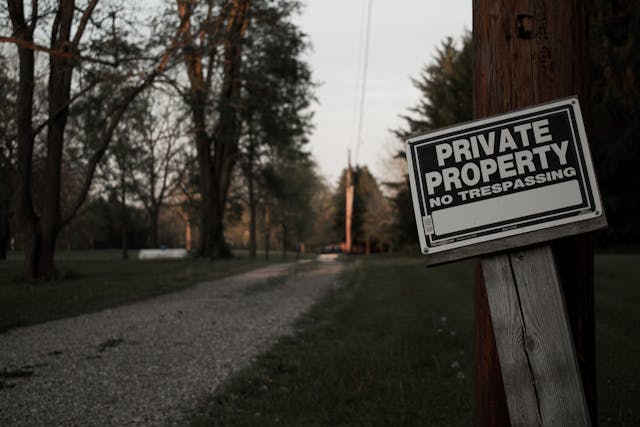
Privacy is important and valued across the United States. Many properties will have signage posted telling people to keep out for that exact reason. When someone’s privacy is disregarded by trespassing, the consequences can be severe. Trespassing can be considered a felony in New Jersey and be accompanied by numerous penalties. If you are being charged with felony trespassing contact a Bergen County criminal defense attorney for assistance.
New Jersey state law generally recognizes two types of trespassing, called defiant trespass and the unlicensed entering of a structure.
Defiant trespassing occurs when a person trespasses onto private property after having been warned to not enter. There are various ways that a person can be warned not to trespass. It can come in the form of a verbal warning or a sign that says to stay out or no trespassing. Those are explicit warning signs. A warning can be implicit as well if there is something like a fence surrounding the property that implies that intruders are not welcome.
A person commits unlicensed entry of a structure if they enter a certain type of property that they are not licensed to enter. For example, in a research facility, laboratory, or otherwise secured location you need certification or privilege to enter. This type of trespassing can be considered a more serious crime than defiant trespassing because of the nature of some of the structures.
There is a third category of trespassing that does not include physically entering a private property. It is known as peering and entails looking into a window or opening of a private structure intending to invade someone else’s privacy.
Trespassing in New Jersey can be considered a disorderly persons offense or an indictable crime, the state’s term for a felony. The penalties that you are given will depend on the specific circumstances of your case, but in general, the consequences will be as follows.
Defiant trespassing:
Unlicensed entry of structures:
Unlicensed entry of structures if the structure was on a school property, nuclear chemical plant, or utility company
Peering
Work with a skilled attorney to formulate a defense for your case. You may argue that the property was abandoned and not technically owned by anyone, that the property was open to the public and you were there legally, or that you were or genuinely believed you were within your rights to be there. An experienced attorney will be able to evaluate your case and determine what defense option will be most likely to benefit you in a court of law.
© 2024 The Law Office of Kevin T. Conway. All rights reserved.